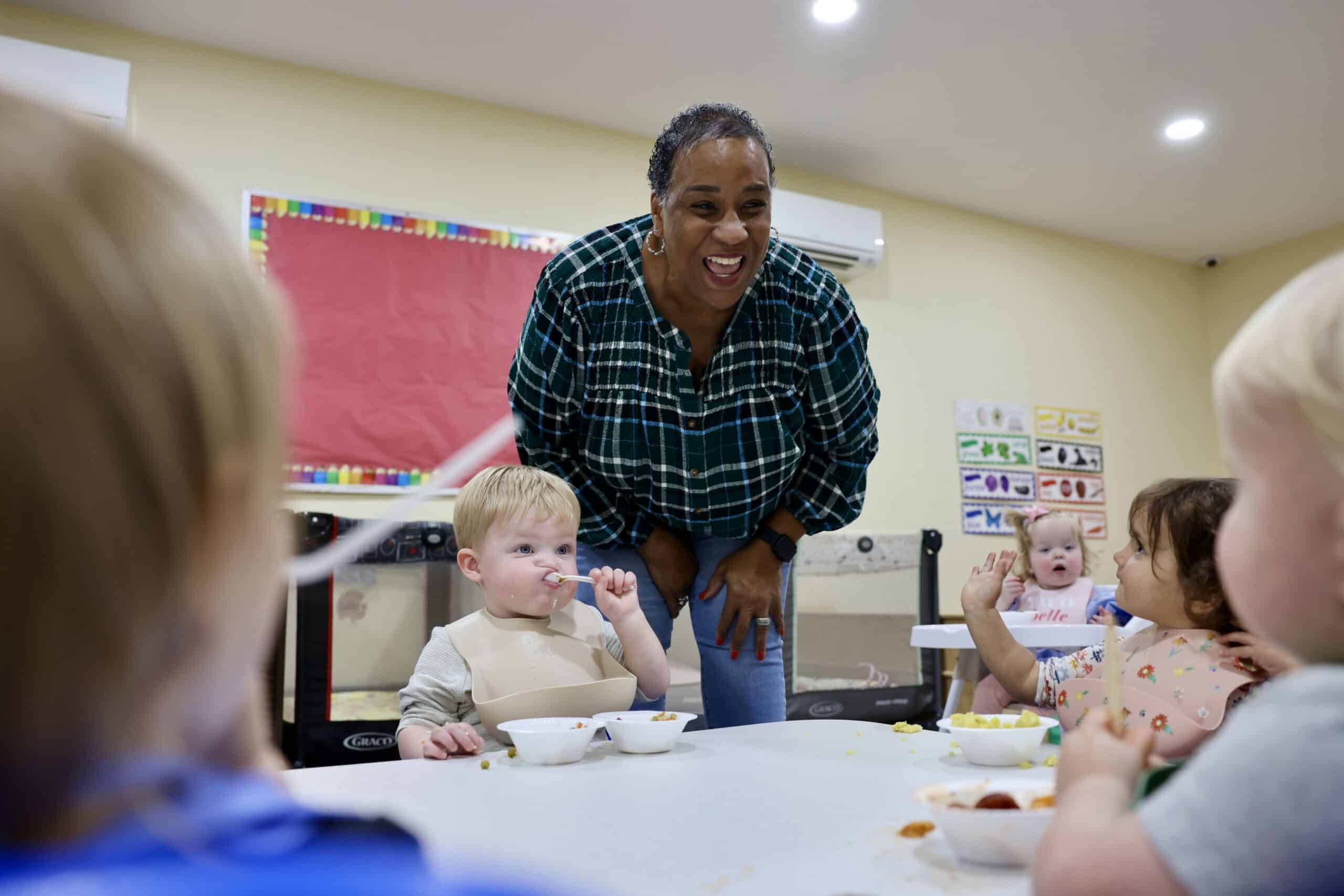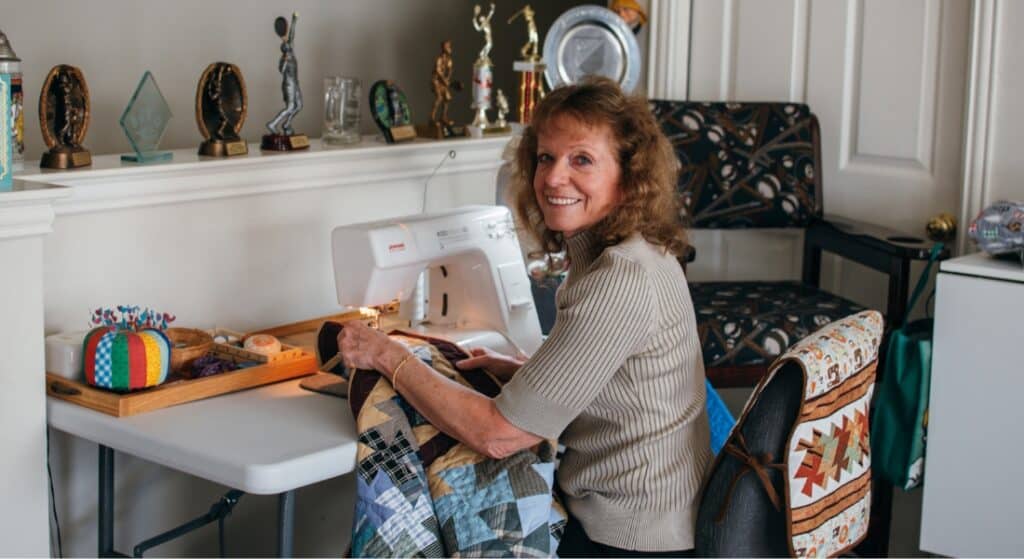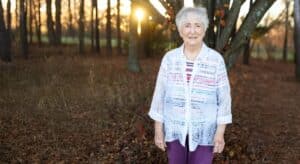The inspiration Karol Fuget needed to battle breast cancer came from her two sons, as well as her adopted family at Park Cities Day School, the Montessori school she’s led for 30 years.
First diagnosed in December 2023, Karol was on her way out the door to watch her younger son, Malex, graduate from Dallas Baptist University when she learned the news.
“I got to the graduation and watched my son, wondering how I was going to tell him,” she says.
After all, Malex was just a teenager when he lost his older brother, Chaz, to sickle-cell anemia in 2016, and Karol assured him that she wasn’t going anywhere: “I wanted him to know that I was going to beat this.”
Drawing on her love for both men, Karol would go on to beat her cancer thanks to the team at Methodist Dallas Medical Center.
“I tell anybody that I hope and pray they don’t go through breast cancer,” she says. “But if they do, Methodist is the best.”
SELF-EXAM REVEALS CANCER
Karol deserves credit, too, because she caught the cancer when an initial mammogram could not.
“I felt a knot in the shower,” says Karol, who was inspired to get a mammogram after that self-exam and a painful run-in with her car. “I hit my breast on the side mirror. It hurt.”
After further self-examinations and advice from her coworkers, Karol went to an independent imaging center for 2D imaging.
The key to preventing breast cancer is managing your risk factors. Take our health risk assessment. Visit MethodistHealthSystem.org
Standard mammograms, or 2D imaging, take two flat X-rays of the breast from two angles, whereas 3D mammograms (also known as tomosynthesis) capture more detail from multiple angles. While usually effective, 2D imaging can make detecting small tumors more challenging, especially in women with dense breast tissue.
“I did the 2D, and I asked the doctor, ‘Is it cancer?’ and he told me everything was fine,” Karol says. “After a couple of weeks, I noticed there was a long indentation on my breast.”
With the pain in her breast lingering, Karol’s primary care doctor referred her to Danielle Jacobbe, DO, breast surgeon on the medical staff at Methodist Dallas.
“Immediately on examination, she had certain features that were indicative that this was an underlying breast cancer,” Dr. Jacobbe said. “Even in light of her 2D mammograms, there was something insidious going on underneath.”
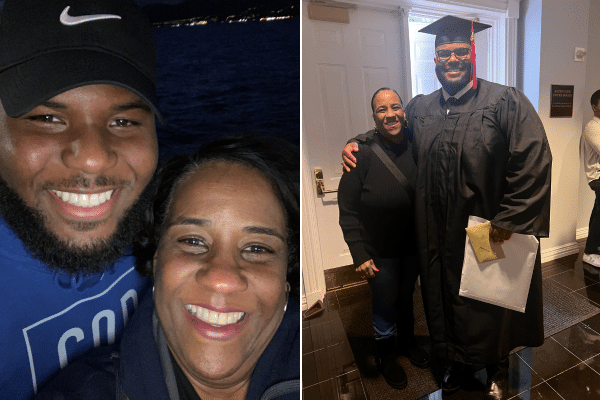 Karol, with her son Malex, found out about her diagnosis the day he graduated from college.
Karol, with her son Malex, found out about her diagnosis the day he graduated from college.
FINDING STRENGTH TO FIGHT
Karol was diagnosed with stage 3, triple-positive breast cancer, so named because its growth is fueled by the hormones estrogen and progesterone, as well as a protein called HER2. Those self-exams were the key to discovering such an aggressive cancer before it reached stage 4.
“We know about 20% of breast cancers are self-diagnosed, but the scary number is about 10% to 15% of breast cancers are not showing up on mammograms,” Dr. Jacobbe says. “That’s what happened in Karol’s case, and it’s a scary number. It’s something we don’t talk about and why self-exam is so important.”
Karol was no stranger to difficult diagnoses and drew strength from watching her son Chaz, battle sickle-cell anemia, a blood disorder that causes fatigue, infections, and tissue damage.
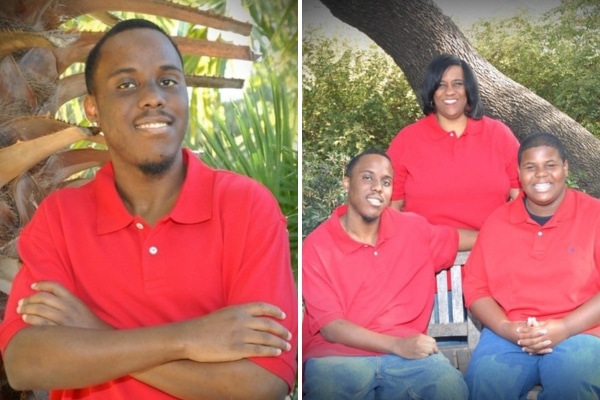
Chaz (left) passed away at age 27 but remains a guiding light for his mother, Karol, and brother, Malex.
“Chaz was a warrior. He spent a lot of time in the hospital, probably four or five days out of a week,” she says. “I knew if he could do it while he was in pain, then I had to fight this.”
Karol began neoadjuvant chemotherapy sessions every three weeks to shrink the tumor before surgery. After that, she had the tumor removed with a lumpectomy, a surgery that helps treat cancer while keeping most of the breast intact.
Malex was there for each treatment, praying over his mom. Karol felt both of her sons were her source of strength, pushing her toward recovery.
“Chaz passed at 27 years old, and Malex was around 15, so Malex had to grow up really fast,” she says.
CARING FOR CHILDREN
After each chemotherapy session, Karol’s main goal was getting to work the next day.
“I never miss work,” says Karol, who considers the families at Park Cities Day School to be her extended family. “I always tell my parents at the school that they’re my children, and their kids are my grandchildren.”
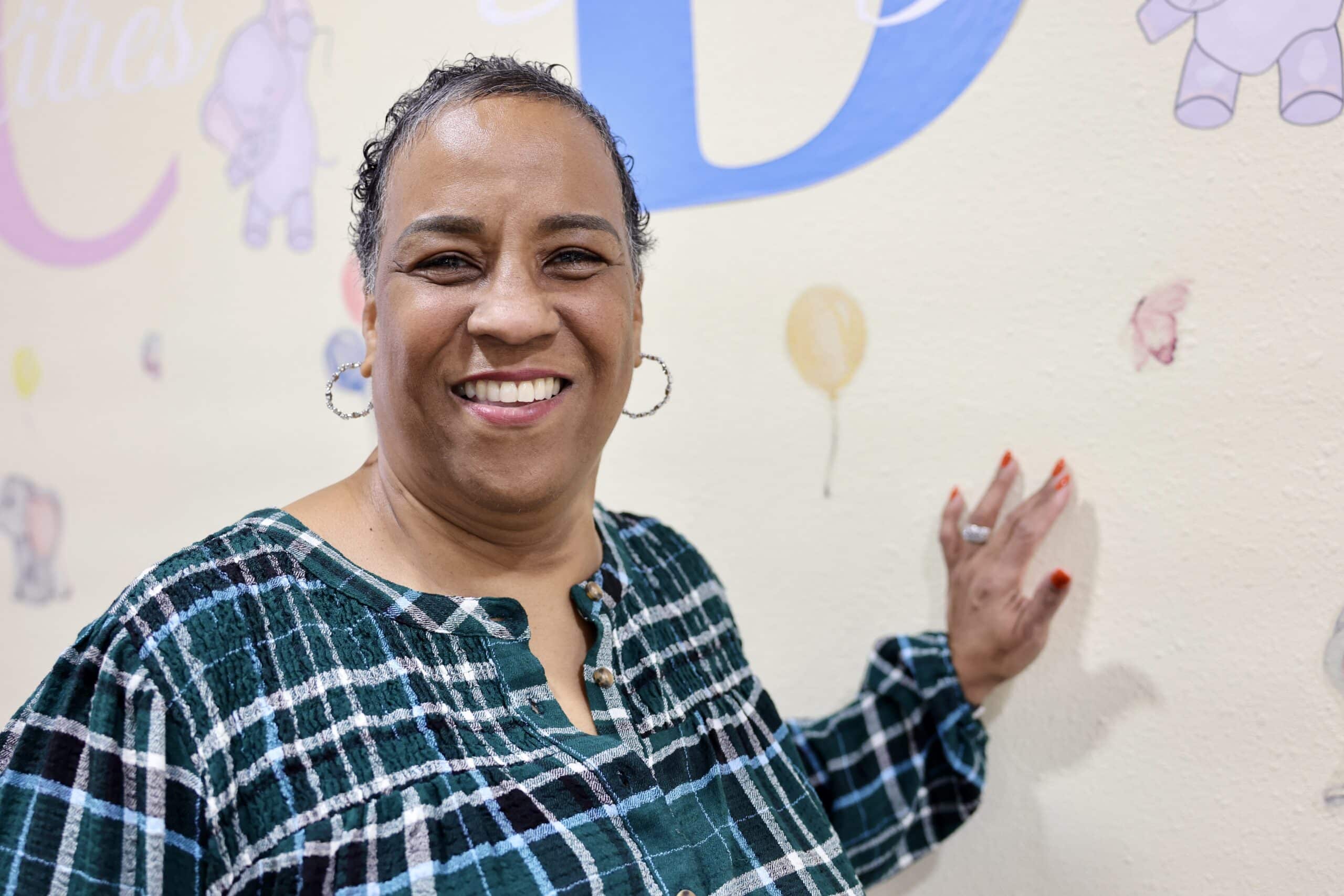
Karol’s role as director of Park Cities Day School kept her motivated during chemotherapy treatments.
Once they heard about Karol’s diagnosis, parents at Park Cities Day School sent out letters to raise money for her treatment.
“The parents set the whole thing up and raised almost $11,000 for me,” she says. “All of that money went straight to the hospital treatments.”
The support from family and friends allowed Karol to remain positive through the moments of fear. Now in remission, she’s reminded of how lucky she truly is.
“I was nervous, but I never let anybody know because I think if you’re negative, it takes longer to heal,” Karol said. “I was always smiling and laughing because I’m so blessed, and in the end, I knew God had me.”

